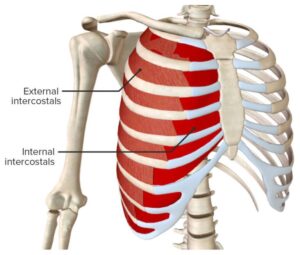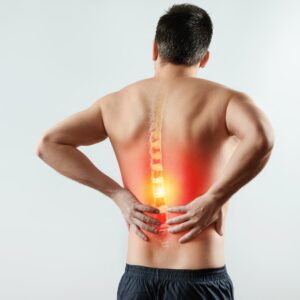It is quite bad enough to be full of cold and coughing a lot. So we don’t need a bad back on top of it.
Unfortunately, it often happens that besides feeling poorly you also experience a sudden and sharp back pain. This can be just the result of a muscle strain, but it can also indicate a more severe problem, especially if you already suffer of back pain.
Here some causes and tips on how to prevent and manage this painful combination.

Coughing is a mechanism of our body to clear the airways form any “unwanted bodies” and to expel phlegm from the lungs. So, in principle a very useful action. Intense and /or strong coughing caused by an infection though can overload and even strain the muscles in the rib cage and the abdominal muscles. The sudden and repetitive bending forward movement can also overstretch the muscles in the back.
So, you can already understand that, if you spend the day sitting at the desk hunched over the computer, your back muscle will already be in a weaker situation. Also, the intercostal muscles, the ones between your ribs that get activated the most when you, will possibly be tighter in the front.
Intense coughing can then aggravate:
- Osteoarthritis: This is the most common type of arthritis and is due to changes in the shock-absorbing cartilage between your bones that can naturally occur with age. It sometimes causes symptoms such as pain and stiffness, which can be exacerbated by coughing.
- Spinal Stenosis: This condition occurs when the space in the spinal canal narrows and puts more pressure on your spinal cord and nerves. If you twist or bend to the side when you cough, like when trying to direct your cough away from others nearby, you may move into an aggravating position and irritate the region, causing an increase in pain.
Intense coughing can also cause

- Muscle Strain: If your back muscles are already sore from a day slouching, or a tough workout or a day of strenuous housework, it can be normal for them to feel uncomfortable when you cough.
- Disc Protrusion: it may be that your inter-vertebral disc(s), the cushioning between two vertebrae, was already in a bit “unhappy” but you weren’t that aware of it. A combination of sudden force in a “wrong” position, like bent and twisted, could create a peak force which could weaken or damage the disc and irritate the nerve. In this case you will feel a sharp pain in your back and you might find it difficult to go back to an upright position.
How to Prevent Lower Back Pain When Coughing

While there are many strategies to manage lower back pain when coughing, ideally, you want to prevent it from happening in the first place. Here are some ways to help do that:
- Brace yourself Got a tickle in your throat? Try to “brace” your back before coughing. If you’re sitting or standing, simply pull in your belly and push your hands against your thighs as you cough. If you’re lying in bed, cross your arms in a tight hug across your chest. This will take strain off your back
- Avoid the twists when trying to direct your cough away from others nearby, again tense up your belly first, then turn to one side moving your pelvis first rather then the shoulders.
- Arch your back: after the coughing fit try to sit upright, take some deep breaths lift your chest to the ceiling and arch your back 3-5 x.
- Deep breathing getting used to regularly take deep breath during your day may help to keep your lungs “happier”. This as well will help reduce stress and increase oxygenation. Check this link and give it a try for a week.
- Drink plenty of fluids If you’re coughing because of allergies or a respiratory virus, you’ll want to make sure you’re well hydrated. This can help make coughing less frequent or intense.
- Stay active. The best way to prevent back pain when coughing is avoid too much slouching and make sure that you have strong back muscles.
If it hurts and you are stuck
- Take deep breaths and try to sit/stand upright
- Carefully tilt your pelvis back and forth a few times
- Place your hands on the small of your back, lift your chest to the ceiling and slowly arch your back backwards. Repeat 5-10x.
- Try some ice or heat compresses. (ice helps with the nerve pain, heat helps to relax the muscles)
- If the pain persists, seek medical advice. Remember that we offer Free 15 min Consultations
BE AWARE
If you have any of these symptoms with your back pain and cough, speak to your doctor straight away:
- numbness or tingling around your bottom or genitals
- trouble peeing, or loss of control of peeing or pooing
- fever
- losing weight for no reason
- swelling or deformity in the back
- pain that is worse at night
- pain that is not improved by resting
- pain after a serious accident
- pain from the top of your back
